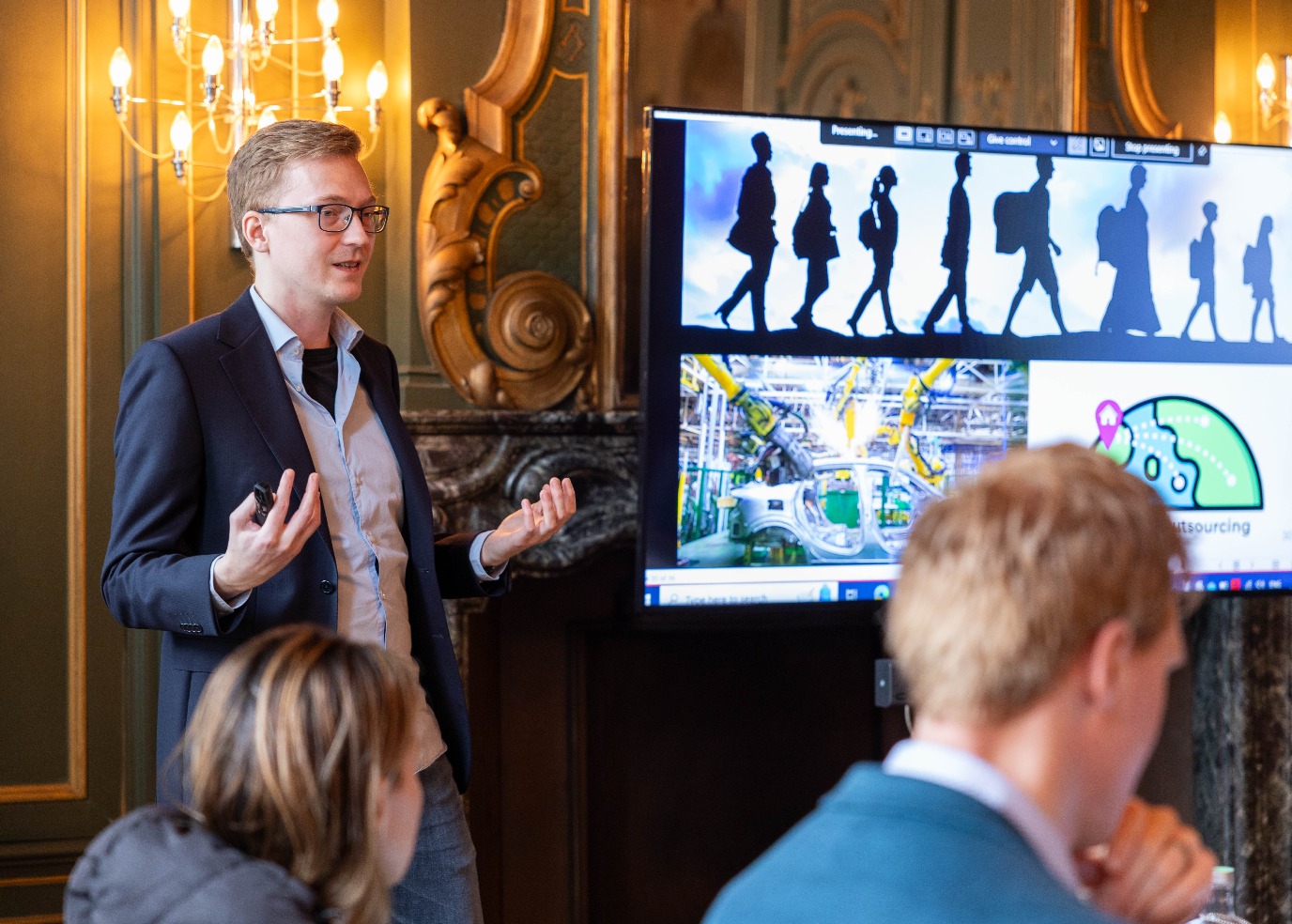HorizonEU research project on skills shortages, migration and global development (GS4S) kicks off

A new research project seeking to understand how to mitigate skills shortages has recently kicked off. It is funded through the EU’s Horizon Europe programme. The project is titled ‘Global Strategy for Skills, Migration, and Development’ (GS4S) and is led by Radboud University, with the University of Groningen as one of the partners. In the project, assistant professor Daniël Speldekamp represents the University of Groningen.
With an ageing workforce and the ongoing transition to more a sustainable and inclusive economy, the EU is faced with the challenge of finding people with the right skills for its labor markets. The GS4S project seeks to better understand the concomitant skills shortages in three selected sectors (Digital, Care and Construction), and endeavors to create evidence-based policy suggestions that leverage global mobility schemes. Uniquely, the project takes a business perspective covering the macro, meso and micro level, studying how Small- and Medium Enterprises (SMEs) and Multinational Enterprises (MNEs) currently address skill shortages. Moreover, the project focuses on skilled (migrant) workers experiences with skilling, upskilling and reskilling in EU and non-EU regional contexts.
Adressing shortages and labour market needs
The researchers strive to propose multi-level policies on labour migration governance and alternative ways for addressing these shortages in six regions - the EU Member States plus Iceland, Liechtenstein and Norway (EEA), the Western Balkans, the Middle East and Northern Africa, West Africa, and South/South-East Asia. Using mixed-methods research, the interdisciplinary consortium aims to provide exploitable datasets and practical tools for policy makers, businesses, and educational institutions in the EU and non-EU countries towards improved matching of skills to address labour market needs. In doing so, the project will contribute to a socially sustainable (well-being oriented) global strategy for skills, migration and development.
Daniel Speldekamp, who represents the UG in the project, is assistant professor at the Faculty of Economics and Business’ Department of Innovation Management & Strategy. He looks forward to collaborating with colleagues on the project in the upcoming years. “Skill shortages are everywhere: in IT, in healthcare, in construction – the list goes on. Together with colleagues such as prof. Ayse Saka-Helmhout (Radboud University) and Arjan Heyma (SEO Economisch Onderzoek), I investigate how businesses can best respond and how policy can become more supportive. Is it best for businesses to resort to automation and upskilling workers, or subcontracting and offshoring? Can skilled migrants be attracted – and if so, under what conditions does this work well? Can public entities be facilitators? In this project we will answer these questions and many more to inspire EU-policy for a more sustainable and inclusive economy.”
The project consortium
The GS4S project is led by Radboud University (Nijmegen, The Netherlands) and further includes partners in Austria, Belgium, Estonia, Italy, Netherlands, Switzerland, Egypt, Nigeria, and Bangladesh. In total, the project received 3.6 million euros from Horizon Europe, of which Speldekamp received € 126,000 on behalf of the UG. The project started at beginning of 2024 and is expected to be completed at the end of 2026.
Questions? Please contact dr. Daniël Speldekamp.
More news
-
09 December 2025
Are robots the solution?
-
10 November 2025
Decentralization of youth care
